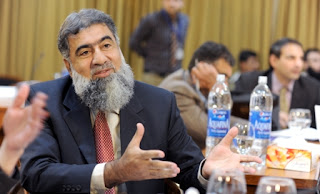Today’s economic environment has created a need for finding
creative and cost-effective methods for solving complex issues that afflict
societies. Higher Education Institutions (HEIs) worldwide are increasingly
being seen as the catalyst for fostering this innovative approach. This led to
creation of an essential third mission of universities, other than teaching and
research, called Knowledge Exchange.
The British Council’s Internationalising Higher Education
programme in partnership with the Higher Education Commission of Pakistan
started a massive programme on Knowledge Exchange in 2011 as a result of which Pakistan Pakistan
 As part of their Knowledge Exchange initiative, the British Council
held ‘Connect’ event in November 2011 with an aim to bring together members of
universities, industry, government and non-governmental organisations. It was a
vibrant and interactive event that aspired to create new collaborations and
spark new ideas. However, the British Council was looking for a way to make it
sustainable through some local partnership. Entered Distinguished Innovations,
Collaboration & Entrepreneurship (DICE) and “DICE-Connect” happened!
As part of their Knowledge Exchange initiative, the British Council
held ‘Connect’ event in November 2011 with an aim to bring together members of
universities, industry, government and non-governmental organisations. It was a
vibrant and interactive event that aspired to create new collaborations and
spark new ideas. However, the British Council was looking for a way to make it
sustainable through some local partnership. Entered Distinguished Innovations,
Collaboration & Entrepreneurship (DICE) and “DICE-Connect” happened!
DICE is an initiative of HEC that promotes knowledge-based
revolution in Pakistan
The merger
of DICE and Connect is a win-win for both the British Council and HEC as it provides a common platform to all key disciplines in academia,
industry, government and non-government organisations to interact, collaborate
and share innovative ideas and concepts hence expedite the process of
technology revolution in Pakistan
The
first DICE-Connect event held in December 2012 was attended by Vice Chancellors
of numerous Pakistani universities, renowned researchers, eminent thinkers, media
experts and students and over 600 participants from different walks of life.
Over 100
innovative projects from diverse fields were displayed by industry and students
at Industrial Exhibition. More than 50 universities and industries participated
and around 1500 guests visited the Industrial and Student project exhibition
over the two days.
 Addressing
at the inaugural session of the event, Mr. Peter Upton, Country Director,
British Council Pakistan highlighted the importance of Knowledge Exchange
Partnerships between the academia and the industry. Peter mentioned that during
early 1990s, UK Government policy had already changed the
research exploitation system by encouraging them to enhance their technology
push. It was not an easy process, and now there are several Apex bodies in
Addressing
at the inaugural session of the event, Mr. Peter Upton, Country Director,
British Council Pakistan highlighted the importance of Knowledge Exchange
Partnerships between the academia and the industry. Peter mentioned that during
early 1990s, UK Government policy had already changed the
research exploitation system by encouraging them to enhance their technology
push. It was not an easy process, and now there are several Apex bodies in  The
speakers appreciated the excellent work being done by universities in building the fundamentals of the economy in
The
speakers appreciated the excellent work being done by universities in building the fundamentals of the economy in
Bringing
academia, government and non-government organisations and industry on the same
platform has always been a major challenge. For successful innovation to take
place, a sophisticated innovative ecosystem involving all partners is needed to
support and enhance discovery, innovations, IP creation and commercialisation.
Knowledge exchange is not just about the commercialisation of science and
technology through the creation of spin-offs and patents etc. It encompasses
all disciplines, including the arts and humanities.
The next DICE-Connect event is scheduled to be held at














